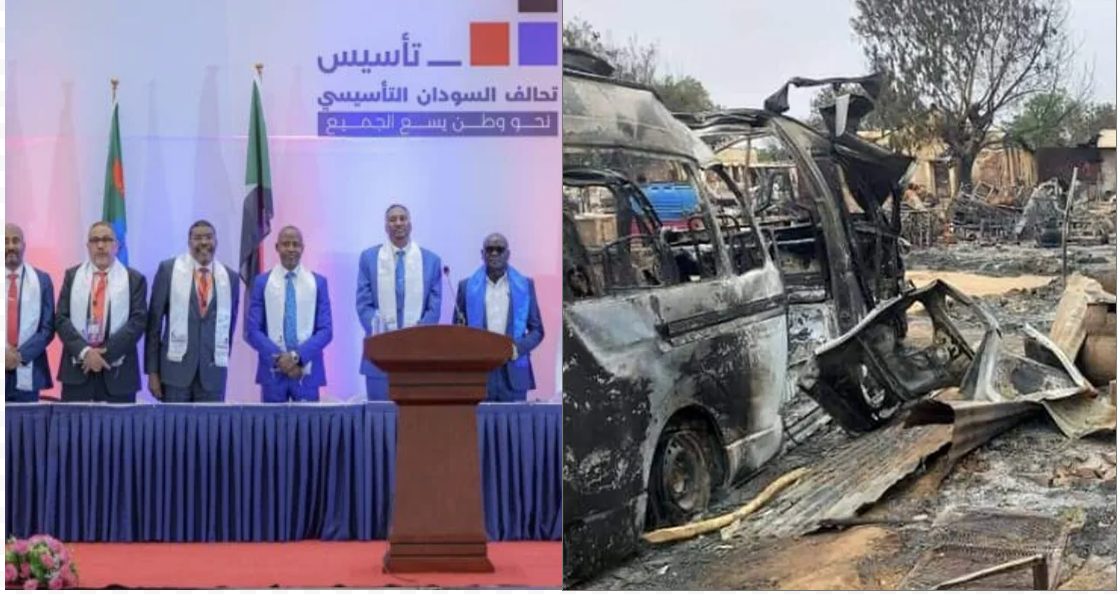
The BLA and ISKP Clash in Balochistan
The BLA and ISKP Clash in Balochistan
Executive Summary:
- A deadly March 2025 clash in Mastung District in Balochistan ended the uneasy coexistence between the secular Baloch Liberation Army (BLA) and Islamic State–Khorasan Province (IS–KP). The rivalry creates an opportunity for the Pakistani government to exploit as the two groups dedicate resources to fighting each other, though civilians are expected to be caught in the crossfire as the situation escalates.
- Despite the declaration of war, the BLA has focused on state targets and avoided direct confrontation with IS–KP. This may signal a preference for compromise and desire for renewed peace between the two groups. IS–KP, however, has threatened to carry out suicide bombings against Baloch nationalist political gatherings.
The turbulent south-western Pakistani province of Balochistan is witnessing the beginnings of an armed conflict between Islamic State–Khorasan Province (IS–KP) and the Baloch Liberation Army (BLA). The current situation stemmed from deadly clashes between militants from each side that resulted in heavier losses for IS–KP (South Asia Terrorism Portal, May 30). The BLA is a secular ethnonationalist-separatist terrorist group, and IS–KP is the local branch of Islamic State (IS). In the Mastung (Balochi/Urdu: مستونگ) District of Balochistan Province, the two groups are engaged in a turf war.
Clash in Mastung: A Turning Point
The clash that escalated hostilities between these two groups started in March in Mastung. Mastung District is known as a hub for both militant groups, and each boasts a significant presence in its rural areas. On May 25, IS–KP released a 36-minute propaganda video through its Al-Azaim Media Foundation (Arabic: مؤسـسة العزائم الاعلامية) claiming that the BLA launched an assault on an IS–KP training camp (for more on Al-Azaim Media Foundation’s releases, see Terrorism Monitor, May 6, 2022). The video, which was titled “The Incident in Mastung and the Conspiracy of the Infidels,” (Urdu: مستونگ کاسانحہ اور کفار کادسیسہ) detailed how BLA militants surrounded the IS–KP camp, rounding up IS–KP fighters and killing 30, including several foreign nationals (Khorasan Diary, June 23).
Before this incident, both groups may have been upholding an implicit non-interference arrangement. Previously, they had shared the rugged terrain of Balochistan and maintained camps and hideouts not only in Mastung District, but also in the districts of Sibi, Kalat, Bolan, and Khuzdar. The BLA attack marked the end of their implied détente. [1] According to local law enforcement agencies, the assault was provoked by IS–KP militants, who had previously slit the throat of a BLA militant while he was likely spying on the IS–KP camp. The BLA then planned an attack on the IS–KP camp to avenge the death of their comrade. [2]
IS–KP declared war on both the BLA and its allied Baloch nationalist-separatist groups. IS–KP made it clear in the May video after the Mastung raid that the group considered Baloch nationalist-separatist militants “agents of the infidels” and “secular traitors.” In addition, IS–KP warned that “difficult and bloody days lie ahead for the Baloch nationalists” (X/@bahot_baluch, May 25).
BLA’s Next Steps
The BLA and its allies, the Baloch Republican Army (BRA) and Balochistan Liberation Front (BLF), announced a new campaign termed “Herof 2” (the Black Storm) in May (India Today, May 14). The BLA has not announced any strategy against the growing threat from IS–KP as a part of “Herof 2,” although the BLA may be contemplating renewing the implicit peace agreement with IS–KP. The BLA has already executed Herof 2 operations throughout Balochistan, none of which targeted IS–KP. Herof 2’s instead targeted government infrastructure, including police stations, public buildings, banks, and government forces, including kidnappings and assassinations of officials. The BLA claimed responsibility for killing two deputy commissioners in May and August, and the abduction of one assistant commissioner in August (Dawn, June 5, August 24).
It appears that BLA high command would prefer not to open another front in Balochistan and prefers compromise with IS–KP. If the latter does not occur, IS–KP could plan and execute suicide attacks against rallies and gatherings of pro-BLA political organizations, such as the Baloch Yakjhati Committee (Balochi: بلۏچ یکجهتی کمیٹی, lit. “Baloch Unity Committee”; BYC). In a full confrontation, the BLA could fend off IS–KP, but the group would be forced to expend resources fighting jihadists rather than its preferred target, the Pakistani government.
Conclusion
The clashes between IS–KP and the BLA as well as subsequent IS–KP declaration of war against the BLA underscore a strategic shift in the militant landscape of Balochistan. IS–KP seeks to undermine the BLA’s authority, challenging the separatist group in its traditional strongholds. Meanwhile, the primary target for the BLA remains the Pakistani state—not IS–KP—and it would prefer a truce so as not to waste resources that could otherwise be dedicated to weakening the security forces.
As far as the Pakistani state is concerned, this conflict between the BLA and IS–KP creates new risks and opportunities for policymakers. The weakening of the BLA, a long-time threat to the Pakistani government, could provide the latter an opportunity to take advantage of, as the group is distracted by IS–KP. Similarly, IS–KP’s notoriety for feuding with other militant groups—even those it could ally with for the sake of anti-state militancy—serves to deplete its own resources and make it vulnerable to counterterrorism initiatives should Pakistan launch them. Regardless, a two-sided asymmetric conflict would likely result in significant civilian casualties, contributing to the weakening of the Pakistani state’s reputation if it refuses to intervene and lets the BLA and IS–KP bleed themselves at the expense of Mastung’s residents.
Notes:
[1] The author’s discussions in July with a senior official of the Counter Terrorism Department.
[2] The author’s discussions in July with a senior officer of the Counter Terrorism Department of Balochistan police, who requested anonymity.


